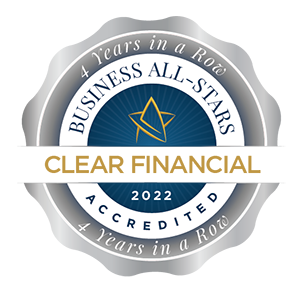You’ve probably heard the theory that automatically opting people in when it comes to socially responsible behaviours has a better uptake level than waiting for people to make the decision to ‘do the right thing’.
Take organ donation for example. Austria has an ‘opt out’ policy in relation to organ donation and has almost 100% organ donor participation whereas its close neighbour Germany has an ‘opt in’ policy and organ donor participation rates are around 12% of the population. The difference between these culturally very similar populations is inertia and not necessarily indifference towards organ donation.
Inertia when it comes to decision making is just one of a range of theories devised by the likes of Amos Tversky, Richard Thaler and Daniel Kahneman, collectively known as behavioural economics.
Businesses and governments have been using the theories to nudge people in certain directions. Our government’s proposed pension auto-enrolment scheme is an attempt to nudge us into preparing responsibly for retirement, but will it work?
Pension Auto Enrolment (AE)
The Irish government through the Department of Employment Affairs and Social Protection is currently proposing an opt-out scheme to help improve pension uptake for those with no private pension.
This proposed mandatory pension scheme (currently subject to a public consultation process) is being introduced to address the high numbers of employees who face retirement on no income other than the state pension.
Under these new proposals, the Department of Employment Affairs and Social Protection suggests that all PAYE workers between the ages of 23 and 60 earning more than €20,000 will be automatically enrolled in a pension in 2022 if they are not already signed up to a scheme.
They would pay 1% in the first year, a figure that will rise by one percentage point every year until 2027 when they would be contributing 6%.
The contributions would be matched by their employer up to a salary of €75,000 and the State would contribute €1 for every €3 saved by the scheme member.
In this scenario, from 2027, workers would see a total of 14% of their gross pay going into a fund for their retirement.
The Department says that Ireland is one of only two OECD countries without a mandatory earnings-related element to retirement saving.
Open for consultation
The contribution levels are contained in a ‘Strawman’ proposal – a draft proposal drawn up by department officials designed to generate discussion and debate. The Department insists that AE will be revisited to take into consideration responses to the consultation process.
Employees, under the proposal, would choose from among four registered providers, selected by a new Central Processing Authority, to manage their pension and select from a choice of three risk levels for their overall investment strategy. Annual Management Charges (AMC) for the funds would be limited to 0.5% per annum of the funds invested. Employees would choose their pension product provider and if they don’t choose a provider, one would be allocated to them.
Will AE work?
Evidence from the UK experience of AE suggests it can be successful in increasing pension coverage. Opt-out rates in the UK were expected to be around 28% initially whereas actual opt-out rates are currently around 9% based on the most recent public data available. Source: DWP (Department for Work and Pensions) Ad-hoc Research Report No 9, Nov 2014)
It is important to note that increasing pension coverage doesn’t necessarily mean that the issue of pension adequacy will be ultimately addressed but it is definitely a step in the right direction and will raise public awareness of the need to make plans in good time for retirement.
What do you think?
Whether you have a pension or not, feel free to get in touch with me to discuss your income in your retirement. You can contact me on 087-2460510 or alan@clearfinancial.ie
You can read more on the Automatic Enrolment Strawman Proposal via the link below
https://www.welfare.ie/en/downloads/Automatic_Enrolment_Strawman_Proposal.pdf
All citizens, representative/interest groups and industry bodies are encouraged to respond to the consultation. Responses or queries with the subject line Public Consultation – AE submissions are requested by 4th November 2018 and should be forwarded by email to autoenrolment@welfare.ie
Alan Langton is a Senior Financial Advisor with Clear Financial.
MB Planning Ltd. T/A Clear Financial is regulated by the Central Bank of Ireland. Registered in Ireland No. 494837 Registered Address: Rathcoole Premier Office Centre, Main Street, Rathcoole, Co Dublin.
Directors: Michael Bradley (MD), Ciaran Shanley.

